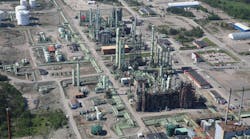World oil demand is set to grow next year for the first time since 2007 and is expected to reach pre-recession levels by 2012, IHS Cambridge Energy Research Associates said in its quarterly World Oil Watch report.
IHS CERA expects oil demand growth to rise by 900,000 b/d in 2010 and resume its 2007 high of 86.5 million b/d by 2012, which would mark a 5-year turnaround.
Oil demand dropped by 2.8 million b/d to reach 83.8 million b/d in 2009. The last time that the world experienced such a severe decline in oil consumption was in the early 1980s, and it took 9 years for demand to return to the 1979 high.
"There are a lot of questions as to whether things will be different this time in terms of the recovery of oil demand," said IHS CERA Chairman Daniel Yergin. "While the answer is that it will be shorter, it is still going to take a substantial amount of time."
Jim Burkhard, IHS CERA global oil managing director, said key differences between the current recovery and that of the 1980s are accelerating oil demand growth from emerging markets and fewer options for substituting fuels on a global scale.
"In the 1980s, the largest area of the demand decline came from power generation, where oil was replaced by readily available substitutes like coal, gas, or nuclear," Burkhard said. "Today, global demand growth is coming from the transportation sector in emerging markets where there are fewer large-scale options for switching fuels."
Overall, emerging markets will drive the recovery of oil demand. IHS CERA expects oil demand to increase to 89.1 million b/d in 2014 from 83.8 million b/d in 2009. The report anticipates 83% of the oil demand growth will come from countries outside the Organization for Economic Cooperation and Development members.
"This near-stagnation of oil demand growth in the industrial countries of the OECD highlights several structural changes," Burkhard said. "Decreasing oil intensity associated with economic growth, higher fuel efficiency, the displacement of conventional oil with renewable energy sources, and a slower pace of growth in transportation fuel consumption—all these point to a leveling off of demand in the industrial world."
While the trajectory of oil demand seems certain, Burkhard said future events always can alter demand.
"While our base case suggests that 2012 will be the year that global oil demand recovers to 2007 levels, we continue to research the alternative scenarios that could alter the balance in the oil market," Burkhard said.

